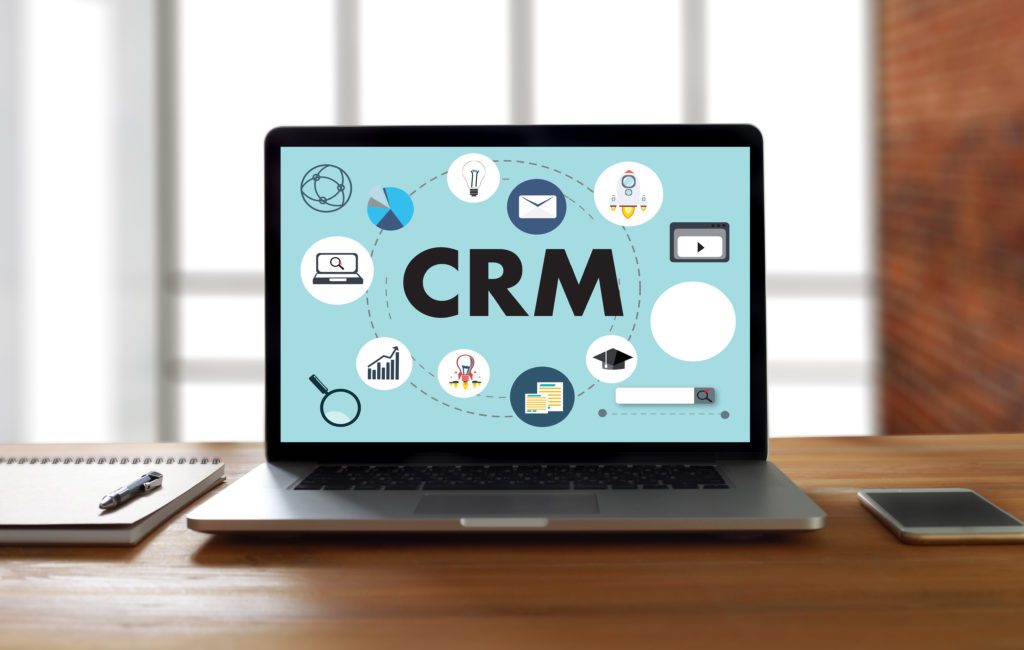
Customer relationship management (CRM) software helps businesses develop and maintain working relationships with their customers. CRM is interconnected to all departments in a business, and the software provides easy access to real-time customer data for sales, marketing, and customer service teams. This software helps a business retain customers, increase sales, and provide detailed analysis of customer trends.
When shopping for CRM software, it’s important to know that not all solutions are created the same. CRM solutions come with several beneficial features, but the features that provide a competitive edge for businesses are key differentiators. Understanding the benefits of these features will help you narrow down your options to the best solutions for your organization.
Read more: Customer Relationship Management (CRM) Explained
Why are CRM features important?
To maximize sales and maintain positive relationships with new or current customers, a business will need CRM features designed to add more efficiency, insight, and precision to sales, marketing, and customer service processes.
For example, a sales team may look for CRM features that allow a sales representative to quickly identify opportunities or referrals from current customers and mark these opportunities as quality leads. This will help the sales rep prioritize the leads that are most likely to drive revenue.
Related: Advantages and Challenges of CRM Software
What are the most beneficial CRM features?
Every effective CRM solution needs to streamline and automate workflow processes, improve customer service, and increase sales. Regardless of the type of products or services a business provides, it will want to be efficient in its processes, retain and grow its customer base, and continually increase its revenue.
Features like workflow automation, contact management, third-party integrations, sales analytics, and lead management help businesses reach these goals.
Workflow automation
Workflow automation features automate repetitive tasks that sales representatives would typically spend time doing manually, like following up with customer emails. Automating these tasks increases the productivity of the sales staff. This feature can also perform manual data entry tasks, send email drip campaigns, and perform a specific action based on a trigger or event.
Pipeline, Smartsheet, and Zoho CRM software solutions offer this feature.
Contact Management
Contact management features allow businesses to group and organize customer contact information into categories to address customers’ interests more strategically. As a result, companies can cater their marketing strategies to customer needs and improve the personalization for each type of customer. The more personalized a marketing strategy is, the more effective it will be.
HubSpot CRM, Insightly, and monday.com offer a contact management feature.
Third-Party Integration
Third-party integration is used to expand the capabilities of a CRM solution by connecting an external application via API. Adding third-party features also keeps a CRM solution flexible and adaptable to new business requirements.
For example, integrating survey tools like Survey Monkey or Typeform allows the company to keep form submission data in a centralized database with the rest of the CRM customer information.
SutiCRM, monday.com, and HubSpot CRM solutions provide third-party connection capability
Analytics
Businesses use CRM analytics to understand future performance and needs based on historical data. This may include sales projections, staffing needs, supply chain forecasts, and product or service offering updates. These insights can then be used to make more informed business decisions.
AgileCRM, Salesforce, and GreenRope offer some of the most powerful analytics features on the CRM market.
Lead Management
Lead management features provide sales representatives with the most sales-ready leads. Lead management uses a systematic process to analyze potential business opportunities and send them to sales associates to convert into business deals.
HubSpot, Zoho CRM, and monday.com all have lead management features.
Evaluating different CRM vendors
When evaluating CRM software solutions, consider that similar features may have different names but perform the same function. For example, two vendors may define lead management and lead generation as performing the same function. For other companies, lead generation and lead management may be defined as doing something slightly different. Therefore, it’s best to avoid asking questions that only require a yes or no answer.
Evaluating CRM software should always include a trial period that lets you test the CRM solution first-hand. Most vendors offer a free trial or a free tier of their pricing structure, but it’s best to pursue this step once you’ve narrowed down your list of prospective solutions to your top options. Then, you will have a perfect opportunity to see if the features function as advertised and make the best decision for your business.
Read next: How to Create a CRM Strategy (Step-by-Step Guide)